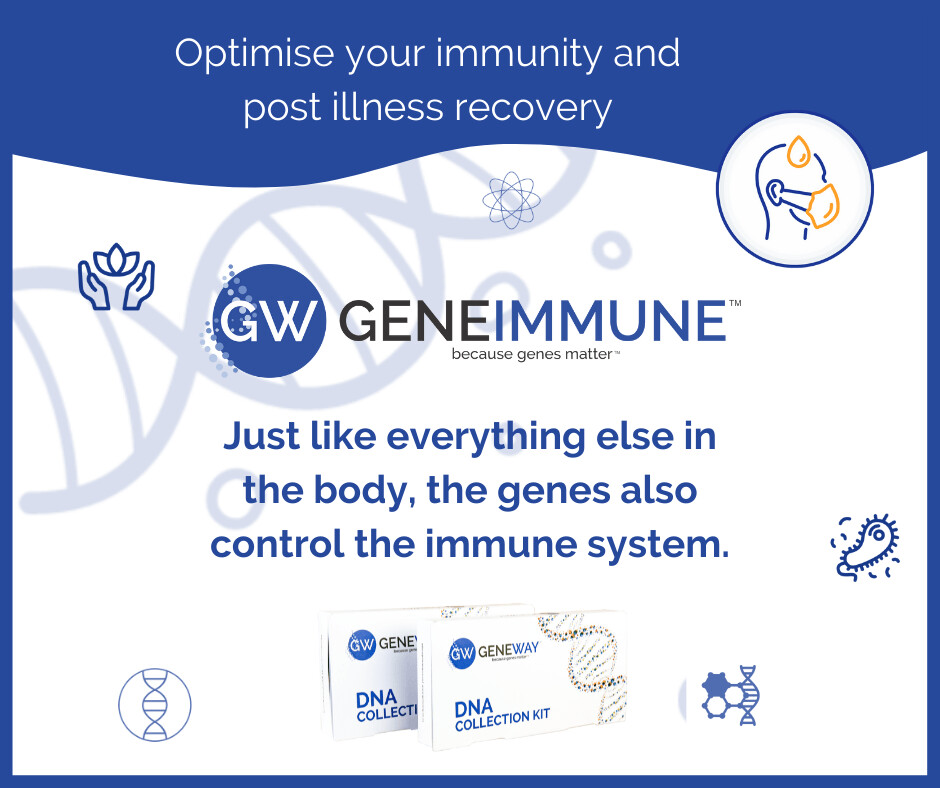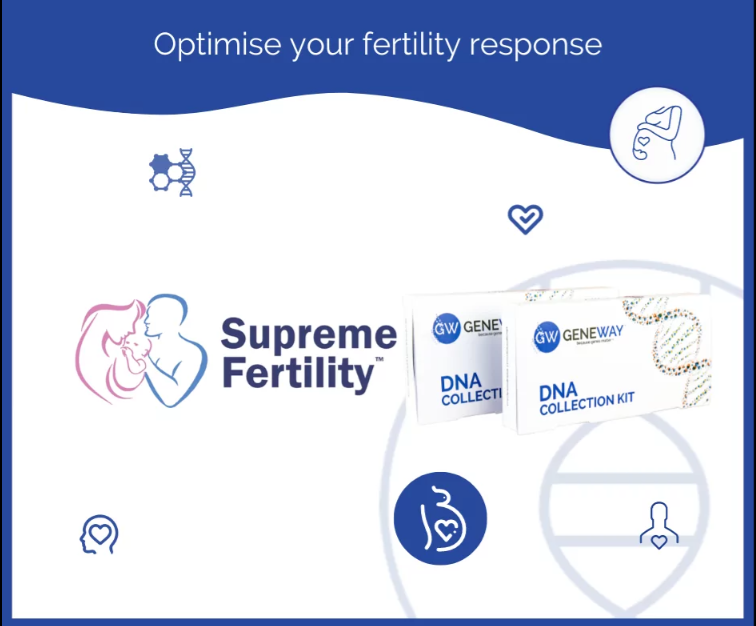GENE-IMMUNE™ Test
The GENE-IMMUNE™ test, tests for 30 genes that affect different parts of your immune system
How will a genetic test help me with my immune system?
Just like everything else in the body, the genes also control the immune system. Some genes detect the virus, some switch the immune system on, some have to switch it off and then informs the body to go clean-up and repair the damaged tissues. Knowing which of your immune genes are working or not working, will take the guesswork out of how you can optimize immune system to protect yourself against viruses and bacteria.
Learn more about the immune system
The tasks of the immune system
Without an immune system, we would have no way to fight harmful things that enter our body from the outside or harmful changes that occur inside our body. The main tasks of the body’s immune system are:
- to fight disease-causing germs (pathogens) like bacteria, viruses, parasites or fungi, and to remove them from the body,
- to recognize and neutralize harmful substances from the environment, and
- to fight disease-causing changes in the body, such as cancer cells.
How is the immune system activated?
The immune system can be activated by a lot of different things that the body doesn’t recognize as its own. These are called antigens. Examples of antigens include the proteins on the surfaces of bacteria, fungi and viruses. When these antigens attach to special receptors on the immune cells (immune system cells), a whole series of processes are triggered in the body. Once the body has come into contact with a disease-causing germ for the first time, it usually stores information about the germ and how to fight it. Then, if it comes into contact with the germ again, it recognizes the germ straight away and can start fighting it faster.
The body’s own cells have proteins on their surface, too. But those proteins don’t usually trigger the immune system to fight the cells. Sometimes the immune system mistakenly thinks that the body’s own cells are foreign cells. It then attacks healthy, harmless cells in the body. This is known as an autoimmune response.
The innate and adaptive immune system
There are two subsystems within the immune system, known as the innate (non-specific) immune system and the adaptive (specific) immune system. Both of these subsystems are closely linked and work together whenever a harmful substance triggers an immune response.
The innate immune system provides a general defense against harmful pathogens, so it’s also called the non-specific immune system. It mostly fights using immune cells such as natural killer cells and phagocytes (“eating cells”). The main job of the innate immune system is to fight harmful substances and germs that enter the body, for instance through the skin or digestive system.
The adaptive (specific) immune system makes antibodies and uses them to specifically fight certain germs that the body has previously come into contact with. This is also known as an “acquired” (learned) or specific immune response.
Because the adaptive immune system is constantly learning and adapting, the body can also fight bacteria or viruses that change over time.
You may also like
GenewayUSA Customer Service
Address: 13619 chapel Oaks San Antonio 78231
Phone: 210-705-9320
Email colin@genewayusa.com
Return/Refund Policy: Once product service has begun the service is non refundable. Request for Refund can only occur within 48hrs from purchase online. Refund request to be sent to
colin@genewayusa.com. Refunds will only be processed once funds have reflected within the account.
Shipping Method USPS and UPS postage





